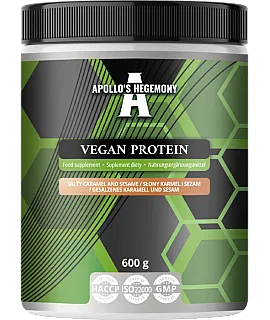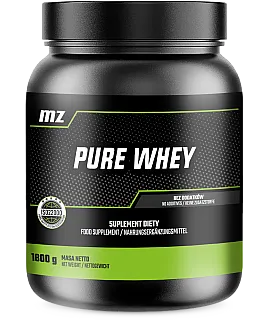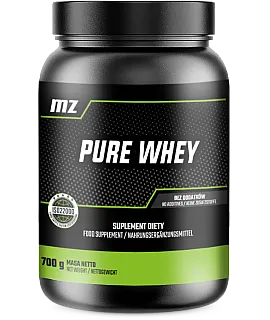How does protein nutrition work and what types are there?
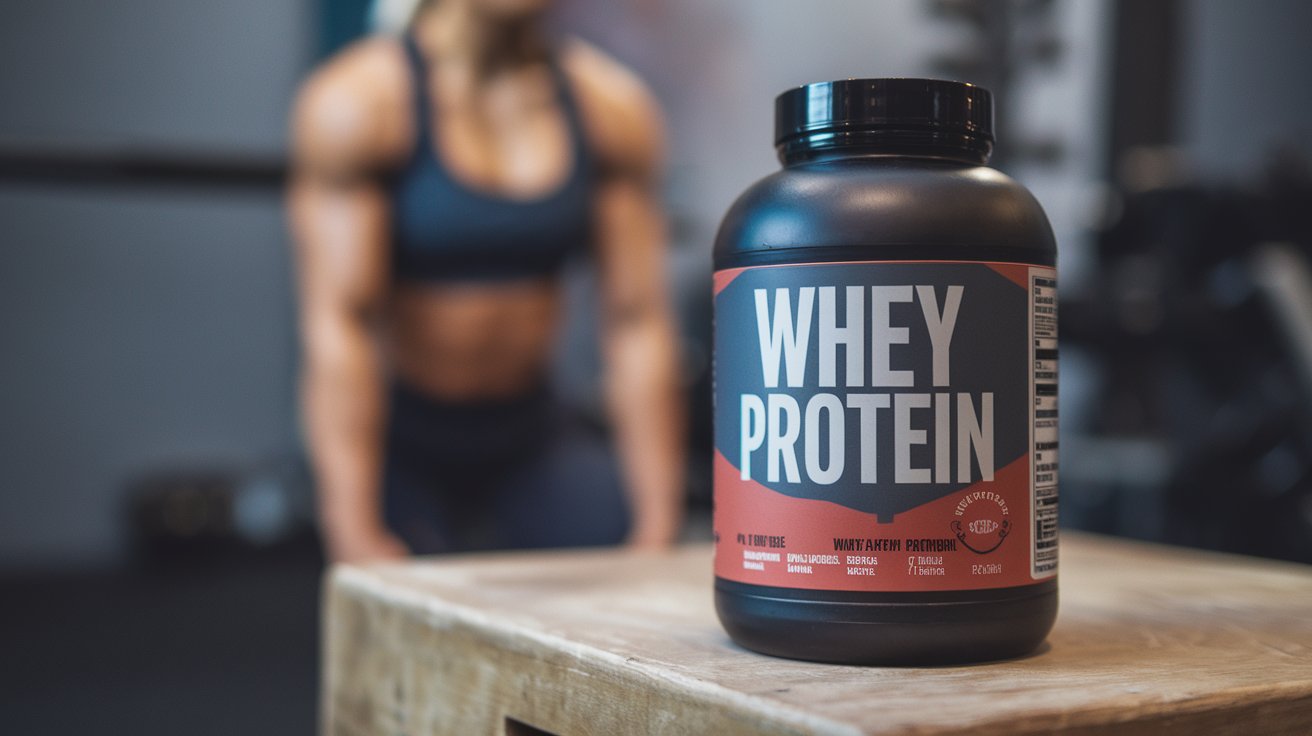
Protein is a macronutrient that helps develop muscle mass and accelerate the rate of post-workout recovery. Protein supplements are now in high demand among regular gym-goers, due to the increased daily protein requirements when building muscle mass. Let's find out how protein conditioner works and what types are available.
- What is a protein nutrient?
- Protein conditioner - how does it work?
- Protein supplement - what types are there?
- Whey protein nutrient based on whey protein.
- Protein supplement based on casein
- Egg albumin
- Plant-based protein supplements
What is a protein nutrient?
Protein conditioner is a product that supplements the diet with protein of high digestibility and assimilability. It is mainly dedicated to people who engage in competitive as well as recreational sports to meet the increased demand for protein. The protein supplement is rich in essential amino acids (essential for the human body), including all three branched-chain amino acids (BCAAs), namely leucine, isoleucine and valine. It usually comes in the form of a powder to be mixed with water, yogurt, cow's milk or your favorite plant-based beverage. Protein conditioner is a common ingredient in a post-workout shake for people training at the gym to increase muscle mass and strength. In addition to this, protein conditioner is commonly added to oatmeal, porridge, omelets, smoothies and healthy desserts to enrich them with complete protein.
Protein conditioner - how does it work?
Protein conditioner is effective for repairing, maintaining and synthesizing muscle proteins due to its high content of leucine and other essential amino acids for the human body. Protein nutrient has been shown to stimulate anabolic processes throughout the body, thus having a beneficial effect on body composition and the rate of skeletal muscle recovery after intense exercise. Studies have shown that protein nutrition (especially whey protein-based) contributes to increased muscle mass and strength in people who regularly perform strength training. Protein nutrient increases lean body mass gain and at the same time reduces body fat mass, waist circumference and BMI in people who train at the gym and follow a well-balanced diet. In addition, when used regularly, protein nutrition reduces appetite and increases the feeling of satiety after a meal, as well as can lower blood sugar levels and prevent the onset of sarcopenia (loss of skeletal muscle mass, strength and power with age) and sarcopenic obesity, especially when used in conjunction with systematic weight training.
Protein supplement - what types are there?
There are at least several types of protein supplements available on the dietary supplement market. Listed among them are:
-
Whey protein (concentrate, isolate and hydrolysate),
-
Egg albumin,
-
Beef protein,
-
Soy protein (isolate),
-
Hemp protein,
-
Pea protein (isolate),
-
Rice protein,
-
Yeast protein(Saccharomyces cerevisiae).
Whey protein nutrient based on whey protein.
Whey protein accounts for about 20% of all proteins contained in cow's milk. Whey protein-based nutrition is characterized by its high biological value and high content of essential amino acids, including three with branched-chain amino acids (BCAAs), namely leucine, isoleucine and valine. There are three main types of whey protein nutrition:
-
whey protein concentrate (WPC - Whey Protein Concentrate) - usually contains 70-80% protein and is the least processed type of whey protein-based protein supplement, with small amounts of fat and milk sugar.
-
Whey protein isolate (WPI - Whey Protein Isolate) - is a product that contains more than 90% protein while being low in lactose and milk fat.
-
Whey Protein Hydrolysate (WPH - Whey Protein Hydrolysate) - the most expensive type of whey protein nutrient containing easily digestible short-chain peptides, which is mainly dedicated to people with known allergies to cow's milk proteins.
Protein supplement based on casein
Casein is a protein with high biological value, which accounts for as much as 80% of the content of all proteins present in cow's milk. Casein-based protein nutrition provides all the essential amino acids and is classified as a good quality protein source with high digestibility and bioavailability assessed by indicators such as PDCAAS (corrected protein amino acid digestibility index) and DIAAS (digestible essential amino acid index). Compared to whey protein, casein is a slower-digested protein that causes a moderate but longer-lasting increase in plasma amino acid concentrations after a meal. For this reason, a casein-based protein supplement is most often recommended about 30 minutes before bedtime to speed up the body's post-workout recovery rate and increase strength and muscle mass gains.
Egg albumin
Egg albumin is a protein with high biological value, which contains 70-80% protein and a small amount of carbohydrates (up to 2%) and fats (up to 1%). Egg albumin-based protein supplement was the most popular type of protein supplement until it was replaced by cheaper dairy proteins, especially whey proteins (WPC and WPI). Ovalbumin-based products can sometimes be found even in supermarkets.
Plant-based protein supplements
The ever-increasing popularity of plant-based diets in recent years has contributed to the fact that plant-based protein supplements are now widely available on the dietary supplement market. We are mainly talking about soy protein isolate, pea protein isolate, hemp protein, rice protein and yeast protein. Plant-based protein nutrient is an excellent addition to the diet of professional and amateur athletes who consistently follow a vegan diet. In many cases, getting enough protein in a plant-based diet is difficult or simply impractical, and even more so when developing muscle mass. It's worth noting that a protein nutrient based on soy protein isolate is by far the best choice for vegans when considering metrics such as PDCAAS and DIAAS.
Sources:
-
Bergia RE 3rd, Hudson JL, Campbell WW: Effect of whey protein supplementation on body composition changes in women: a systematic review and meta-analysis. Nutr Rev. 2018 Jul 1;76(7):539-551.
-
Sepandi M, Samadi M, Shirvani H, et al: Effect of whey protein supplementation on weight and body composition indicators: A meta-analysis of randomized clinical trials. Clin Nutr ESPEN. 2022 Aug;50:74-83.
-
Antonio J, Ellerbroek A, Peacock C, et al: Casein Protein Supplementation in Trained Men and Women: Morning versus Evening. Int J Exerc Sci. 2017 May 1;10(3):479-486.
-
Kerksick CM, Arent S, Schoenfeld BJ, et al: International society of sports nutrition position stand: nutrient timing. J Int Soc Sports Nutr. 2017 Aug 29;14:33.
-
Joy JM, Vogel RM, Shane Broughton K, et al: Daytime and nighttime casein supplements similarly increase muscle size and strength in response to resistance training earlier in the day: a preliminary investigation. J Int Soc Sports Nutr. 2018 May 15;15(1):24.
-
Snijders T, Trommelen J, Kouw IWK, et al: The Impact of Pre-sleep Protein Ingestion on the Skeletal Muscle Adaptive Response to Exercise in Humans: An Update. Front Nutr. 2019 Mar 6;6:17.
-
Kim J.: Pre-sleep casein protein ingestion: a new paradigm in post-exercise recovery nutrition. Phys Act Nutr. 2020 Jun 30;24(2):6-10.
-
Reis CEG, Loureiro LMR, Roschel H, et al: Effects of pre-sleep protein consumption on muscle-related outcomes - A systematic review. J Sci Med Sport. 2021 Feb;24(2):177-182.
-
Costa JV, Michel JM, Madzima TA.: The Acute Effects of a Relative Dose of Pre- Sleep Protein on Recovery Following Evening Resistance Exercise in Active Young Men. Sports (Basel). 2021 Mar 26;9(4):44.
-
Kuo YY, Chang HY, Huang YC, et al: Effect of Whey Protein Supplementation in Postmenopausal Women: A Systematic Review and Meta-Analysis. Nutrients. 2022 Oct 10;14(19):4210.
-
Trommelen J, van Lieshout GAA, Pabla P, et al: Pre-sleep Protein Ingestion Increases Mitochondrial Protein Synthesis Rates During Overnight Recovery from Endurance Exercise: A Randomized Controlled Trial. Sports Med. 2023 Mar 1.
-
https://www.ais.gov.au/nutrition/supplements/group_a#isolated_protein_supplement
 ⮜ Previous article
⮜ Previous article
Training performance of the body - what is it?
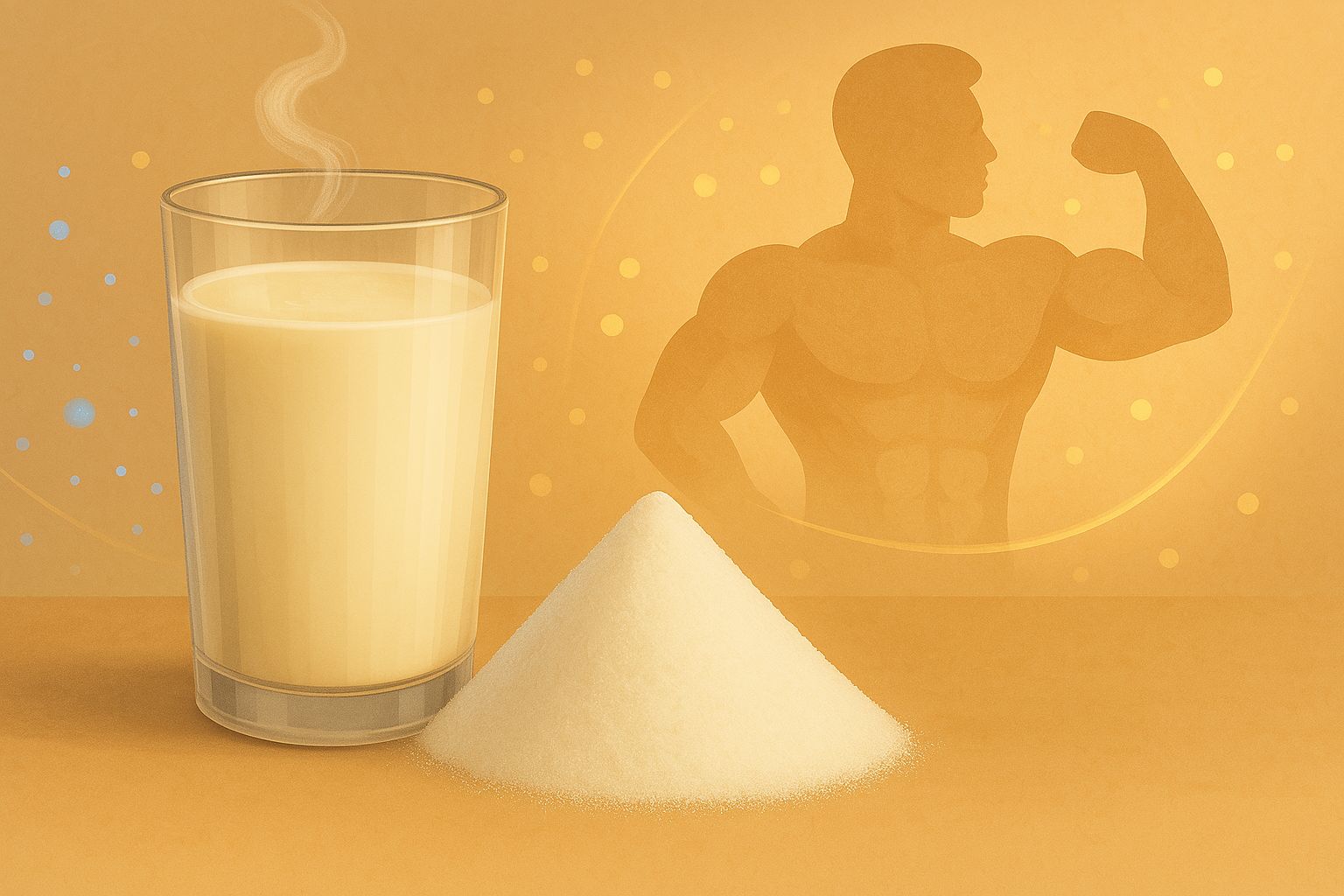 Next article ⮞
Next article ⮞
